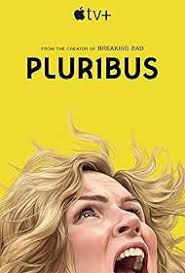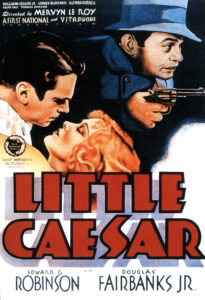.
I have finished all the episodes of Pluribus season one and all of the mainline companion podcast episodes and as such I am ready to expound on the series.

Apple TV
First off, I really liked it. Its premise, that a radical infection, induced by an alien signal, unifies nearly all of humanity into a single group consciousness that is compelled as a biological necessity to non-violence and an irrational reverence for life is unique and compelling. That of the dozen or so ‘survivors’, individuals who due to their genetic makeup are immune to the ‘joining’, our protagonist is a person who, at least in her former life, was quite the anti-people person and now finds herself as the agent to save humanity is also very compelling. Carol Stucka, played by Rhea Seehorn, is a different kind of hero and that is welcome. I look forward to season two and what it brings. I have no doubt that show runner and creator Vince Gilligan has an ending in mind, just as he did with Breaking Bad.
So, theories.
I think the Pluribus effect is an alien weapon system that has been targeted on Earth. The signal originated from a stellar system 640 lightyear distant, meaning even if we caught the broadcast just as it started the aliens that transmitted it did so when the Earth was in the year 1386, without the technology to receive much less interpret the alien signal and its recipe for an RNA virus. It was transmitted blindly for whoever and whenever the people of Earth became able to utilize it,
The Pluribus effect is pretty devastating, both in the short term, where nearly a billion people died from the sudden global disruption, to the long-term effects which look to be an extinction level event.
The effect renders the ‘joined’ or the ‘others’ go with whichever term your prefer, pacifistic and compliant to the transformed. They seek to satisfy every desire and whim of the people who are cut off from the group mind, even delivering weapons of mass destruction if that is what they desire. The ‘joined’ seem wholly and utterly incapable of engaging in violence even in self-defense. A planet so infected presents no threats.
The ‘joined’ are also unable, by biological compulsion, to willingly and knowingly take any action to end any life. About halfway through season one we learn that this prohibition extends to plant life as well, rendering the ‘joined’ unable to harvest anything for food. Once the planet’s population has been transformed, their food source is what was harvested and manufactured before the event and the bodily remains of those that have died.
This means extinction.
The planet, post-event, has a store of calories available for consumption and a population consuming those calories without replenishing that store. Consuming the dead only delays the inevitable mass starvation of the population but with a planet untouched and unmarred by warfare. A far better result than even with Neutron bombs if you want nice welcoming planets around but without their pesky inhabitants.
This dire situation is exacerbated by the fact that the ‘joined’ are also compelled to ‘share the gift.’ That is to construct the massive antennae and power-supply to transmit the signal onto new stellar systems dooming other civilizations to the same fate as Earth, With the fantastic resources required for such a project (neatly described in episode one before anything has really transpired), the ‘joined’ population is diverted from working on a technological solution to the caloric conundrum the event has thrust them into.
The final element that leads me to believe that this is a weapon system is the fact that Carol learned that the process of the ‘joining’ is reversible. So, if the originator or an ally of theirs became infected, it could be undone. Safety for the initiator of the infection, death for the infected, that makes for a pretty good weapon.
I will wrap up this post with what looks like an oversight and a scientific error in the series.
As I discussed above, the ‘joined’ seemingly are prohibited from taking any action that would end any life, but they are more than willing to administer antibiotics, the very word means ‘contrary to life’. Apparently, their prohibition doesn’t apply to single cell organisms. I think more likely is that the series writers simply forgot that life goes all the way down to single cells. (A very competent argument can be made it does not extend to viruses.)
The scientific error deals with a major plot element. The ‘joined’ discover that they can tailor the RNA strand to the un-joined, bringing them into the single consciousness but the process requires stem cells from the individual. Carol refuses to give them the consent to collect her stem cells and believes herself to be safe.
Stem cells are cells that can be differentiated into any kind of cell in the body, they can become nerve cells, liver cells, blood cells, from a stem cell you can produce any tissue of the host.
Okay, I can buy needing stem cells, it is a little bit of a stretch but not a terrible one. The ‘joined’ reveal to Carol that they are using her frozen eggs, human eggs not chicken, to create stem cells to bring her into the collective.
Umm, I cannot see any way for that to work.
Human egg cells do not have the entire DNA of their host. They have only half of the chromosomes which will combine with the half of chromosomes provided by the father to create the full set of a new human being. You cannot create a stem cell with only half of the chromosomes required.
But all SF shows have their errors, some more than others, and this one I can look past as I wait for season two.






